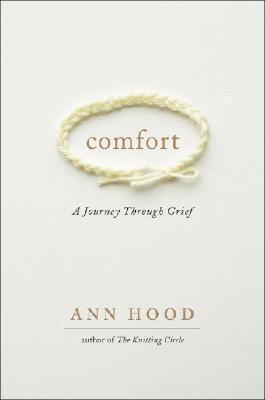
The Long Goodbye
Book Description
Grief comes alive in the haunting pages of 'The Long Goodbye,' a raw exploration of love, loss, and the fragile threads that bind us. As the protagonist grapples with the devastating reality of a loved one’s terminal illness, emotions spiral like an uncontrollable tide, pulling friends and family into a whirlwind of denial, anger, and heartbreaking acceptance. Each moment pulses with tension, revealing the complexities of relationships tested by time and suffering. Can the bonds of love endure when faced with the unthinkable? In this poignant journey, how do we find closure when saying goodbye means letting go forever?
Quick Book Summary
"The Long Goodbye" by Meghan O'Rourke is a profound memoir chronicling the author’s journey through the labyrinth of grief following her mother’s terminal illness and eventual death. O'Rourke masterfully weaves personal narrative with cultural, literary, and psychological explorations of mourning, exposing how grief profoundly reshapes daily life, identity, and relationships. She invites the reader into intimate moments, from the practical tolls of caretaking to the emotional upheaval after loss. The memoir is both an elegy for her mother and a universal meditation on bereavement’s unpredictable course. O'Rourke’s candidness about the frustrations, guilt, alienation, and ultimately, the enduring nature of love, offers comfort to anyone grappling with the aftershocks of losing someone close. Through her honest portrayal, she questions societal expectations of grief and the possibility of true closure.
Summary of Key Ideas
Table of Contents
The Personal Experience of Grief
Meghan O’Rourke’s memoir opens with the onslaught of her mother’s terminal illness, immersing the reader in the daily realities of caregiving, emotional strain, and anticipatory grief. As she navigates hospital corridors, doctors’ warnings, and the incremental loss of her mother’s vitality, O’Rourke reveals the complex spectrum of emotions—helplessness, denial, hope, and dread—that saturate this period. Each moment is charged with the tension of imminent loss, and the memoir captures how family relationships are reshaped as roles change, vulnerabilities surface, and previous family dynamics are unsettled by illness.
Society’s Expectations and Isolation of Mourners
O’Rourke scrutinizes the societal expectations surrounding grief, bringing to light how mourners often feel invisible or alienated. She describes encounters with friends, colleagues, and strangers who are uncomfortable or unhelpful, and examines the lack of rituals and structure in modern Western mourning. The memoir critiques how quickly society expects the bereaved to recover, contrasting this with historical notions of mourning that afforded more time and communal support. O’Rourke’s candid account breaks the taboo around discussing grief’s messiness and duration, allowing readers to recognize their own experiences in her struggle for validation.
The Impact of Terminal Illness on Family Bonds
Central to O’Rourke’s journey is the challenge of maintaining bonds after death. She shows how memories become both a source of solace and pain, reflecting on the difficulty of keeping her mother present in her daily life. Moments of remembering—through physical belongings, photographs, or sudden sensory triggers—underscore how the relationship persists, albeit altered. O’Rourke grapples with guilt over moving forward and the fear of losing her mother twice: once to death and again to forgetting. Through her writing, she explores how the process of mourning is also a process of remembrance and ongoing connection.
Navigating Memory and Continuing Bonds
Beyond her personal narrative, O’Rourke weaves in literary and philosophical reflections on grief. She draws from poets and thinkers such as Freud and C.S. Lewis, situating her experience within a broader continuum of human response to loss. By referencing works on mourning throughout history, she underlines the universal necessity—and difficulty—of grappling with death. This intertextual approach deepens her exploration, affirming that while grief is deeply individual, it is also a timeless and communal experience.
Finding Meaning and Redefining Closure
O’Rourke ultimately arrives at a tentative peace, acknowledging that closure is neither clear-cut nor finite. The memoir resists neat conclusions, emphasizing instead how loss becomes integrated into identity. Healing, she suggests, is possible—not through forgetting or swift resolution, but through accepting the ongoing evolution of love and sorrow. "The Long Goodbye" concludes as it began: in the ambiguous space between remembrance and release, offering solace in the idea that grief, itself an expression of enduring love, need not be hurried away.
Download This Summary
Get a free PDF of this summary instantly — no email required.





